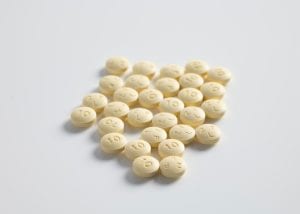The Opioid Epidemic continues to wreak havoc across the nation. There are ways of avoiding opioids – and surgery – when it comes to back pain.
The Opioid Epidemic. I’m sure you heard of it and it’s very likely you have a personal experience whether it’s you or someone you know who has been affected by the opioid crisis. The following two-part article is reprinted with the author’s permission.
Per the National Institute of Drug Abuse (NIDA), Every day, more than 130 people in the United States die after overdosing on opioids
Almost everyone will experience low back pain at some point in their lives. According to recently released low back pain series by The Lancet, low back pain is now the leading cause of disability worldwide.
As a result of back pain becoming an epidemic in itself, it’s to no surprise the medication approach to treating low back pain plays a major role in The Opioid Epidemic.
What Are Opioids?
From the NIDA, “Opioids are a class of drugs that include the illegal drug heroin, synthetic opioids such as fentanyl, and pain relievers available legally by prescription, such as oxycodone (OxyContin®), hydrocodone (Vicodin®), codeine, morphine, and many others.”

Opioids chemically interact with opioid receptors on nerve cells in the brain and body. When prescribed and administered appropriately, prescription opioids are generally safe pain relievers to help an individual manage pain associated with an injury or disease process. Because pain relief from opioids often produces a euphoric experience they commonly become misused.
Because the effects of opioids are so powerful misuse of prescription medication — even when used appropriately by Physician recommendation — the effects can lead to chemical dependence, addiction, overdose, and death.
From the CBHSQ Report, Misuse of opioids typically begins for relatively benign reasons to combat physical frustrations:
- Relieve physical pain
- Relax and relieve tension
- Help with sleep
- To feel good
- Help with feelings and emotions
However, taking opioid medication for the sake of experimentation or to enhance the feeling of other drugs and alcohol leads down a slippery slope where further dosing causes the feeling of being “hooked” or having to have the drug.
For those suffering from addiction and withdrawal of medication, it’s become all too common for them to seek out the readily available and much more affordable “street drug” alternatives such as heroin and other stimulants.
It’s out of the scope of this article to go into detail; however, we can’t turn a blind eye to the business side of prescription medication.
No matter their background, there are good people, bad people, and good people who get caught up into bad stuff. Many accounts of Physicians and pharmaceutical executives abusing their power to inflate their fiscal potential has led to a sad state of affairs for the victims and their families.
The good news is the corporate abuse has led to a serious crackdown and a demonstrative backlash by the people and government.
Why is Treating Pain with Opioids a Problem? A Personal Story
Opioid addiction can happen to anyone.
A good friend of mine, Jim (fake name for anonymity) was a recent college grad who had made it back up to his alma mater for homecoming. Drinking was involved but was not the primary reason Jim took a serious fall down a flight of stairs.
Jim suffered a head injury, needing an emergency airlift to the nearest hospital.
Luckily, Jim walked away with only a concussion, and moderate bumps and bruises — he dodged a bullet.
Jim was living at his parent’s home at the time to earn enough money to afford a comfortable place to live on his own, so he was in a good spot to take the recommendation to take time off from his new career to rest and recover.
In the early phase of his recovery a prescription of hydrocodone (Vicodin) was prescribed to manage some of the pain he was experiencing. Once the prescription had been depleted he turned to anxiety medication (Xanax) he had prior and alcohol. When the Xanax was gone he foraged the medicine cabinet for Opioids which his mother had leftover from a back surgery years prior. As you predicted, he drained his mother’s prescription.
He did not turn to Heroin or other street drugs as many do.
Jim robbed a Pharmacy at knife-point.
Having spoken with him after his four-year sentence in prison, Jim told me even though he wasn’t thinking clearly the addiction made him believe what he was doing was completely plausible.
The good news is Jim was able to turn his life around and is doing quite well today.
He’s one of the lucky ones.
The point is a college graduate living a normal life in the suburbs of Detroit committed a serious felony and could have hurt another individual because of his addiction to opioid pain medication. Granted, he was not abusing opioids for back pain, Jim’s story is all too familiar for the people and loved ones caught in the wave of prescription pain medication.
Tomorrow, we’ll explore ways you can avoid opioids and surgery in part two of this article.


Join the conversation!